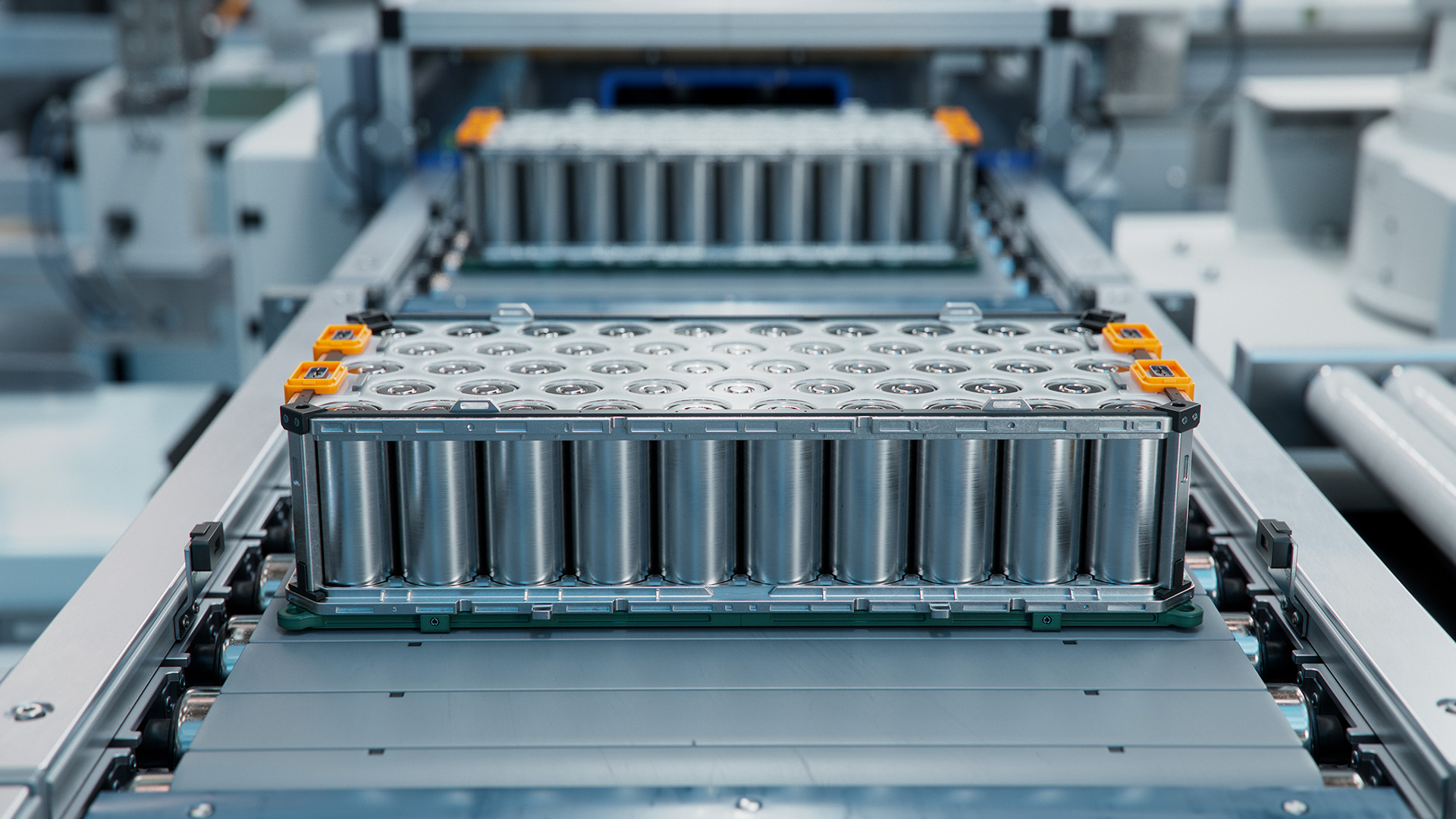The US is standing on the precipice of an energy revolution that may shape its future in a way nothing has since the dawn of industrialisation. We analyse how establishing a domestic lithium battery manufacturing value chain will unlock the country’s clean energy potential.
The country’s potential to transform into a self-reliant powerhouse, unshackled from foreign dependencies for critical energy components such as lithium batteries, cannot be overstated.
This is not just about energy independence or environmental stewardship; it’s about securing America’s position as a global leader in the race toward sustainable development. However, this transformation will not happen by accident; it requires strategic planning and urgent action.
In particular, establishing a robust domestic lithium battery manufacturing value chain holds immense potential for driving economic prosperity while advancing energy sustainability.
The burgeoning demand for renewable energy sources has positioned lithium batteries as crucial elements in modern power systems due to their efficiency and versatility. Harnessing this opportunity would stimulate local production, create jobs, and pave the way toward a more sustainable future.
The importance of energy independence
Achieving energy independence is of paramount importance, as it not only ensures national security by reducing dependency on foreign sources but also fosters economic growth and environmental sustainability.
The role of national security in energy cannot be overstated. In an era where geopolitical influence increasingly hinges on control over critical resources, the ability to produce and manage one’s own energy supply stands as a strategic advantage.
Energy independence insulates a nation from disruptions in global supply chains or fluctuations in international markets that could potentially impact its access to vital resources.
Developing a domestic lithium battery manufacturing value chain further contributes to this goal by driving technological innovation and promoting economic resilience.
Technological innovation, particularly in terms of energy efficiency, can revolutionise how we produce and consume power. By establishing a strong domestic industry for lithium battery manufacturing, opportunities are created for job growth, market competition, and diversification of the economy.
Moreover, through enhancing energy efficiency at all stages – production, transmission, and consumption – we can maximise our use of resources while minimising environmental impact. This approach supports the immediate need for reliable power sources and long-term goals for sustainable development.
Risks of foreign dependence on critical minerals
Reliance on foreign sources for essential components presents a precarious situation, with potential disruptions in supply chains and geopolitical tensions posing substantial threats.
In lithium battery manufacturing, this dependence becomes especially risky due to the strategic importance of these power storage devices in various sectors ranging from renewable energy to electric vehicles.

Supply vulnerability emerges as a significant concern; any disruption in foreign supply can throw off production schedules, resulting in increased costs or, worse still, leave important national projects stranded without necessary resources.
Moreover, escalating trade tensions with major lithium-producing nations could lead to retaliatory measures that exacerbate this vulnerability.
To mitigate these risks and ensure technological sovereignty, it is imperative that the US cultivates a domestic value chain for lithium battery manufacturing.
This would not only enhance national security by reducing reliance on potentially hostile or unstable foreign suppliers but also bolster global competitiveness by fostering innovation and growth within homegrown industries.
The benefits of such an approach are multifold:
- Ensuring reliable access to critical materials: A domestic value chain can serve as a buffer against fluctuations in international markets and secure a steady supply of vital components;
- Enhancing national security: By controlling the entire production process domestically, the US can safeguard its technological infrastructure against external threats; and
- Boosting global competitiveness: Establishing a robust domestic industry can position the US at the forefront of technological advancements in energy storage solutions.
Establishing a robust domestic lithium battery manufacturing value chain is no longer just an economic consideration but has morphed into an issue of national urgency, given today’s geopolitical landscape.
The rising demand for renewable energy sources
Transitioning to renewable energy sources is not just an environmental imperative but also presents a significant commercial opportunity, given the surge in global demand for clean and sustainable power solutions.
Renewable energy innovations have become a central focus point in this transition, especially given their role in greenhouse gas reduction and environmental conservation.
These innovative renewable technologies are essential components of climate change mitigation strategies due to their potential for drastic reductions in carbon emissions compared to traditional fossil fuel-based power generation methods.
Embracing these advancements aligns with broader Sustainable Development Goals (SDGs), particularly those related to affordable and clean energy, climate action, and responsible consumption.
The surge in demand for renewable energy also underscores the importance of developing domestic production capabilities for critical components such as lithium batteries. Lithium batteries play a vital role in various forms of renewable energy storage systems, enabling more reliable and consistent delivery of power from intermittent sources like wind or solar.
Thus, establishing a robust domestic value chain for lithium battery manufacturing feeds directly into both efforts towards environmental conservation and achieving climate change mitigation targets—it ensures the security of supply while promoting green industrial development. Therefore, the rising demand for renewable energy sources reinforces the urgency for developing such capacities domestically within the US.

Potential economic benefits of local lithium battery production
Fostering local production capabilities can bring about considerable economic advantages, including job creation, industrial diversification and increased competitiveness in the global renewable energy market.
Investment attraction is one of the significant benefits that come with domestic manufacturing of lithium batteries. It is not just a question of bringing in financial resources; it’s also about attracting innovative minds and technological advancements to propel the industry forward.
The development of this sector will likely stimulate a new wave of innovation and create a circular economy where waste is minimised, and resources are continually reused. Benefits include:
- Investment Attraction: Developing domestic lithium battery production can attract both local and international investors who see potential in this growing industry. This can lead to an influx of capital into the country, thereby boosting economic growth.
- Export Opportunities: Domestic production can open up export opportunities, leading to increased foreign exchange earnings while ensuring that domestic needs are met first before exporting surplus products.
- Technological Advancements and Industrial Diversification: Local manufacturing encourages technology transfer and fosters industrial diversification – which can help mitigate risks associated with overreliance on specific industries or sectors. Moreover, it provides an opportunity for continuous learning and improvement through research and development activities within the value chain.
In essence, fostering local production capabilities makes economic sense and supports long-term sustainability goals by promoting a more resource-efficient circular economy model while enhancing technological advancements in line with global trends in renewable energy sources.
Job creation opportunities
Expanding local production capacities presents a myriad of opportunities for employment generation, subsequently invigorating the labour market and contributing to socioeconomic progress.
The burgeoning lithium battery manufacturing sector can offer substantial job creation possibilities across several disciplines. From research and development to operations and management, an array of roles can harness skills training to enhance productivity in this cutting-edge industry.
Furthermore, as companies compete for talent, wage growth may ensue, improving the standard of living for many workers. This surge in activity could also stimulate regional development by attracting related businesses or support services into areas hosting these industrial sites.
The innovation boost that comes with domestic lithium battery manufacturing cannot be underestimated either. With increased investment in facilities dedicated to advanced energy storage solutions, numerous scientific breakthroughs are likely to occur, which will necessitate the continual upskilling of employees – thereby driving further job creation.
Moreover, promoting workforce diversity within this sector can encourage varied perspectives and ideas that can lead to groundbreaking products or processes. In essence, these facets combine to create a robust value chain that not only propels economic growth but also equips individuals with valuable skill sets for future industries.

Strategies for achieving sustainability in energy production
In energy production, strategic planning for sustainability is paramount to mitigate environmental impacts and ensure long-term resource availability.
Central to these strategies is the concept of carbon neutrality, an ambition that requires a balance between emitting carbon and absorbing carbon from the atmosphere in carbon sinks. The development of green innovations also plays an essential role in achieving sustainability goals.
Pioneering technologies, such as advanced lithium batteries, can offer lower emission alternatives to traditional power sources and contribute significantly to reducing the global carbon footprint. Moreover, strides towards a circular economy can further promote sustainable practices by encouraging reuse and recycling, thereby contributing towards waste reduction.
The integration of energy efficiency measures within manufacturing processes forms another crucial aspect of sustainability strategies. Optimising operational procedures to minimise energy consumption reduces not only environmental harm but also enhances economic viability by lowering costs.
In relation to domestic lithium battery manufacturing in the US, employing such measures would entail making strategic decisions concerning sourcing materials sustainably or improving production line efficiency.
A commitment towards achieving waste reduction further ties into this efficient approach; less wastage translates into more value retained within the product lifecycle, a key principle underpinning a circular economy model.
These comprehensive strategies collectively highlight how sustainability can be integrated into all facets of energy production and use for creating a thriving domestic lithium battery manufacturing industry in the US.










